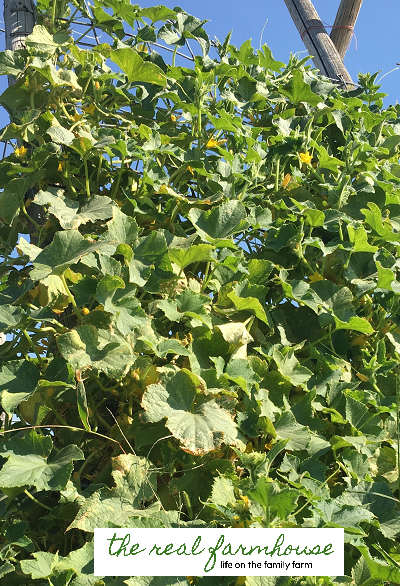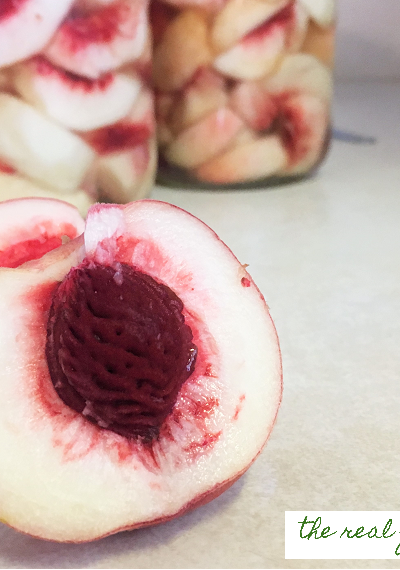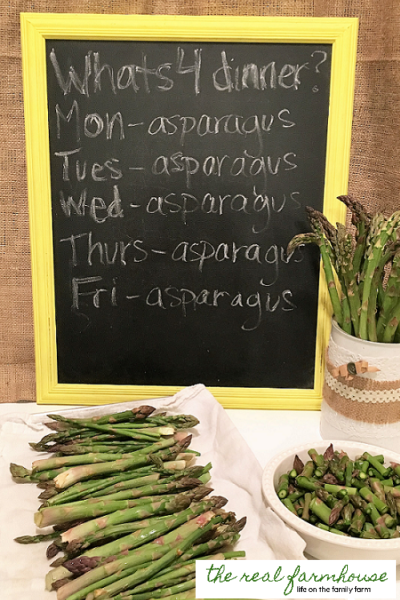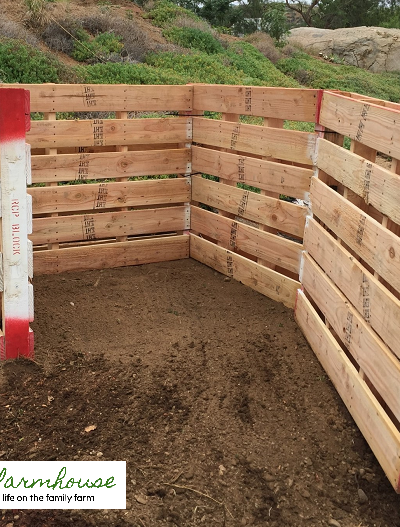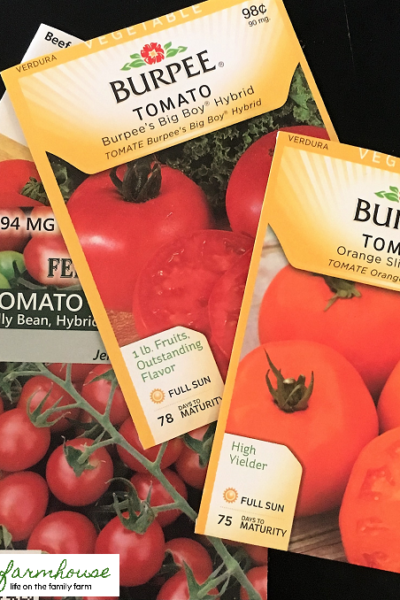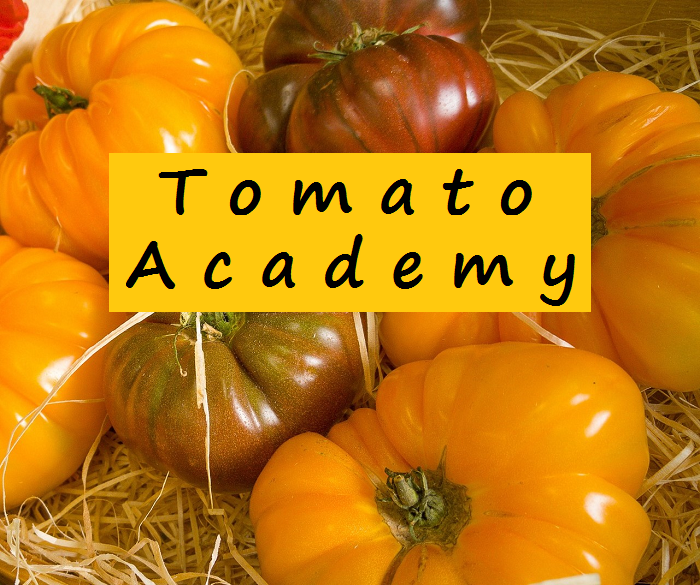When it comes right down to it, I am not crazy obsessed with being “organic”. Here is what happened to me…
I hate bugs in my garden, and I hate weeds. I WANT OH SO BAD to spray them all with chemicals and be done with them, but when I start to even come close to spraying that stuff on my garden, inevitably one thing always happens. One of my beautiful and tiny little kiddos goes over and plucks a fresh strawberry or pepper or carrot from it’s home and straight into their mouth it goes. Then I think to myself, how am I supposed to spray chemicals all over something that my child is going to pop in their mouth??
I don’t KNOW that something terrible is going to come of it … but seriously that stuff can’t be good for human consumption. So, you see, I CAN’T spray my garden with chemicals. I just can’t.
A few years ago, before I had kids following me around everywhere, I did spray things on my garden. I am sorry you had to hear that, but yes, yes I did. So at some point I had to actually make the switch to organic gardening. Which brings me to today’s topic:
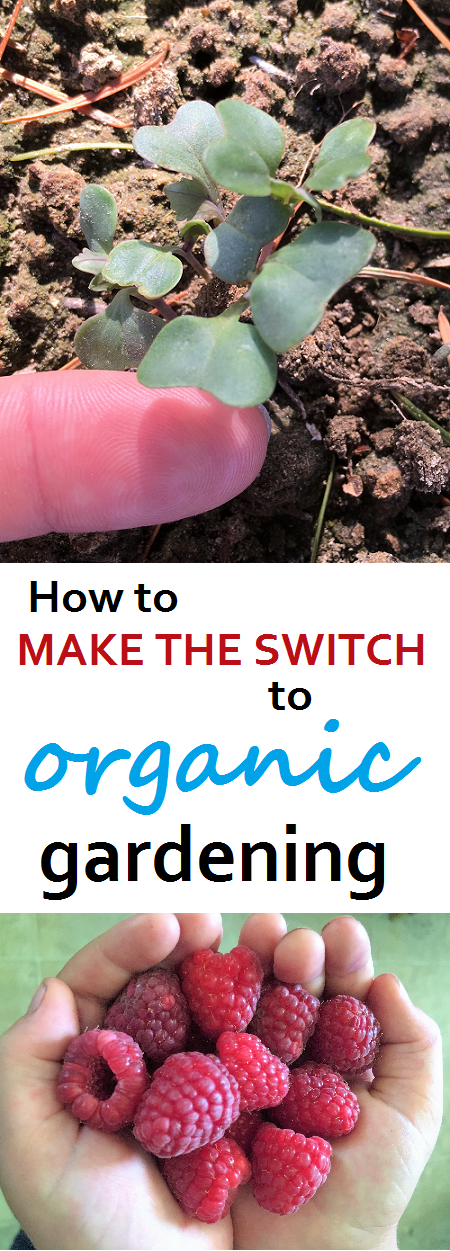
This can feel like a daunting task, I know! But don’t worry, it’s not as scary as it seems. There are a few simple changes that will make all the difference.
The first thing you need to think about is what big things need to change in your garden. Here are things that need to be adjusted to change from non-organic to organic:
- The seeds or plants you purchase
- The dirt you plant into
- The way you feed your plants
- The way you keep bugs off your plants
- The way you keep weeds out of your garden
I live in a farming community. A small, but growing, percentage of the farmers are organic. Everyone else sprays their fields multiple times a year for bugs and weeds. My husband does not farm organically, so trust me when I tell you that I understand both sides.
I have spoken in depth with a few organic farmers and it is truly a tough thing to do. The reason organic produce is so much more expensive is because it is impossible to get as large a crop as their chemically inclined counter parts. The bugs and weeds can not just simply be sprayed out in an organic field or orchard. It requires more time as far as work, and more loss as far as the crop goes.
There are certainly pro’s and con’s of each side that I understand completely. As for my own garden, I chose to make the switch. However, it does require a change in the way you garden.
So let’s discuss shall we …
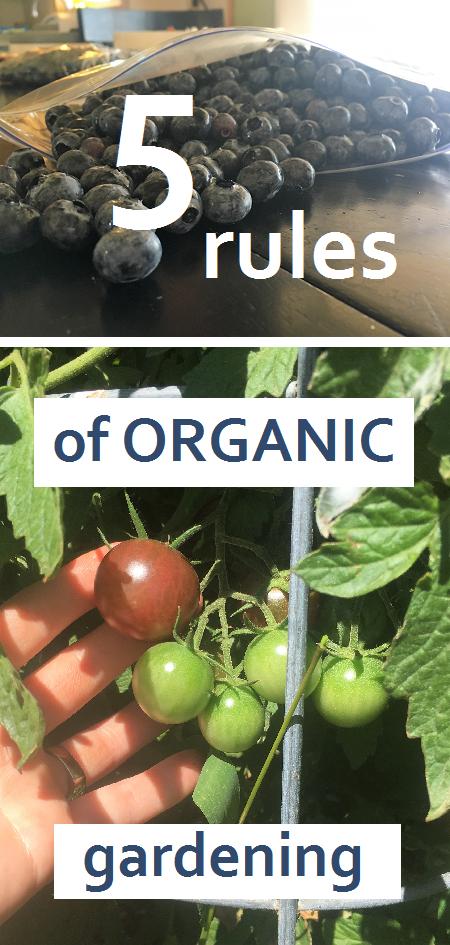
1. The seeds or plants you purchase
This one is not a huge hassle. All you have to do is make sure to purchase organic seed or organic plants. Organic is a pretty popular thing right now, so it’s not too difficult to find an organic section wherever you normally shop. Just look for the large and brightly colored organic sign meaning more expensive plants and seeds this way!
Yes, they are usually more expensive. Again, that’s because they are indeed harder to grow than non-organic seed.
If you are worried about the validity, check to see if they are marked “certified”. To be certified, they are checked up on a few times a year to make sure they aren’t fibbing.
Of all the places that I love to find organic seeds, I have one absolute favorite. My only complaint is that I wish they specialized in every kind of seed, not just tomatoes. That place is called Tomato Fest. The reason these guys are my favorite … well there are a lot of reasons actually. First off, I LOVE supporting a family business. This particular business is a man and his wife who love tomatoes, and decided to make a life revolving around them. They are organic AND heirloom seeds, double whammy! And my favorite part …. they sell more than 600 varieties of tomatoes! Wow!
Another bonus is that the germination rate of these seeds is noticeably higher than the other places I ordered from. Check them out seriously- these are the coolest organic and heirloom tomatoes you have ever seen!
Wherever you normally buy your seeds or plant starts, just make sure to purchase the certified organic ones. Check off number one!
2. The dirt you plant into
There are plenty of ways to feed and prepare your soil for planting. Some people use store bought soil. Others add chemically enhanced nutrients. Bagged compost is another option I see a lot.
Whatever you choose to do to your soil needs to be an organic method. So if you buy bagged soil or compost from the store, make sure it’s organic.
My personal favorite way to organically enhance my soil is with good old fashioned homemade compost. It’s the easiest thing in the world guys. You almost can’t mess it up. Just be mindful that what you put in is organic, and you will end up with beautiful humus perfectly made for your garden. And it’s FREE!
CLICK HERE to see an awesome 10 minute compost bin made out of pallets. Easy peasy, no excuses.
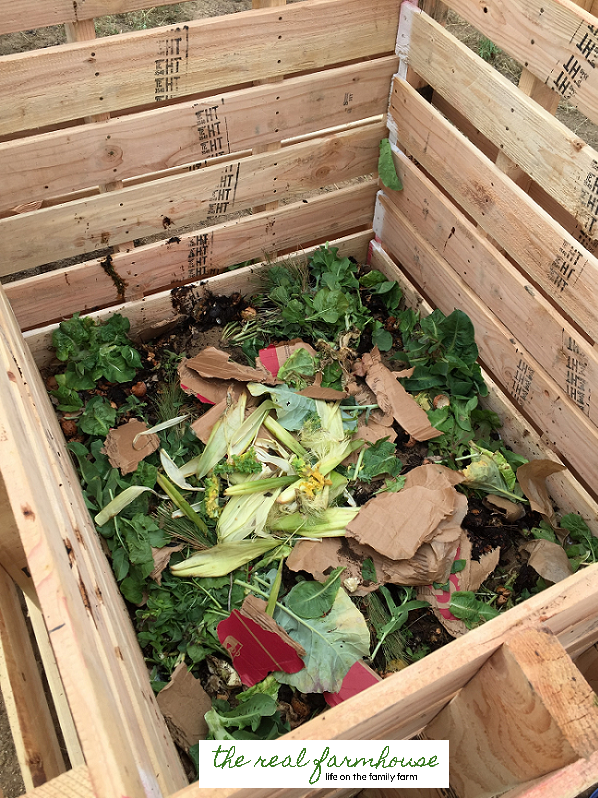
One other great way to enhance your garden soil is by planting a cover crop to overwinter. Then a couple weeks before you are ready to plant, just churn the crop into the soil and it will break down right in your garden.
3. The way you feed your plants
This is similar to number two because it’s all about feeding your soil and your plants. Throughout the growing season, it’s a great idea to feed your plants. It gives them a boost, and it replenishes the soil.
Again, compost is my favorite way to do this. I just feed my plants a heaping dose of home made compost about twice during the growing season and I see a noticeable difference. None of this miracle grow stuff, only organic guys! If you prefer store bought things, just check to make sure it’s organic before you start dumping it in your dirt.
4. The way you keep bugs off your plants
These last two are the hardest for me personally. Remember a minute ago when I told you about my disdain for bugs and weeds. Yeah, I really hate them in my garden. Although I dislike them, I do recognize that there are many beneficial bugs for my garden (another reason not to spray harmful chemicals).
Organic gardens are significantly harder to keep bad bug and weed free. You can’t just mist the whole thing with chemicals one day, and then enjoy the bug and weed free garden the next. You have to work at it. You have to use different methods for different bugs and plants.
There are organic sprays you can buy. I haven’t found any that I love. I have made a few of my own that work alright, but nothing that has really impressed me yet.
Companion planting is a big help for organic bug control. I love charts and graphs, especially for things like this with so much information to organize. This particularly awesome companion planting chart comes from fix.com

They wrote an awesome article all about garden pests you can READ HERE. Trust me, you want to read this one.
Rotating where you plant things and when you plant things can also make a really big difference in the bugs. Believe it or not, WHEN you plant your starts outside has an effect on bugs. Squash bugs are the worst for this in my area. I plant some squash really early, then some a little later, and some even later than that. The early planted ones are covered in squash beetles year after year. The later planted ones hardly ever have any squash beetles.
If you plant the same thing in the same spot every year, the bugs will get worse. They will thrive in that soil and love that you continue to plant their favorite food in the same spot for them to feast on. You need to move things around and change it up. Keep the bugs guessing and frustrated.
Another thing I do to combat this problem (but may not be an option for everyone because of space), is to plant a TON of extra plants. This may sound silly, but I just let the bugs eat what they are going to eat sometimes. Same thing goes for the rabbits and the gophers.
If I can’t BEAT them, why not just give them what they want. I have plenty of space in my garden, so I plant considerably more than I need to. That way, when a plant is nipped off by a bunny, or taken over by ants, I don’t have to mourn for days, I just try to fix the problem and move on. With plenty more plants, I don’t stress it when I lose one or two to the pests.
This one will be tricky for you when making the switch from non organic to organic gardening. Be patient and try out a few different things to see which one works best for you. If all else fails, just plant A TON of extra like me and don’t worry too much about the bugs eating your veggies.
5. The way you keep weeds out of your garden
Weeds are at least easier to take care of than bugs in my opinion. It took me a year or two to get it down, but weeds are more predictable than bugs. They have to have light and water, and they can’t move or hide like bugs can.
All you need to do to get rid of weeds organically is mulch. DO NOT take it easy on the mulch. The secret to making it easier on you is to smother out the weeds so you never even have to deal with them to begin with. You can read all about my mulching strategy HERE or watch my video HERE.
I have used all kinds of things to mulch. In fact, I still use a variety of things depending on what I mulch around. I use grass clippings around a lot of things because I have such a big yard. I use wood chips around more permanent plants. I lay down tarps or plywood sometimes. Straw is also useful. Leaves and pine needles create a decent barrier.
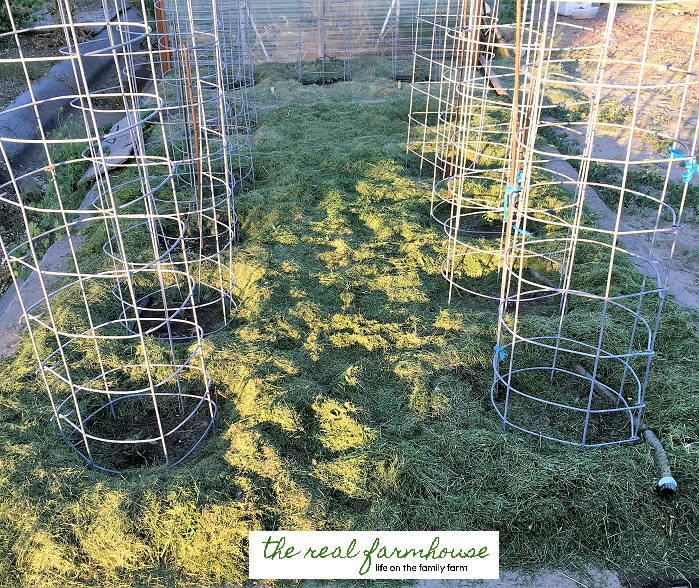
Whatever you can get your hands on that is organic and that you can pile up two or more inches. You have to block out the light. You need to smother the weeds chance of growing.
The great part though is that you only have to do it once a season if you do it right. Plant your garden, mulch it well, and never have to worry about weeding it all season except maybe right around the base of the plant.
After a season or two of getting used to things, I began to really enjoy the organic side of gardening. I love that I don’t have to worry when my kids eat straight out of the garden. I like doing things in a natural way. Making the switch to organic gardening may seem like a huge jump to you, but if you know how to approach it then you will transition with ease.
To finish it all off, let’s make a list. I am a list person and I haven’t made one yet today so let’s do it!
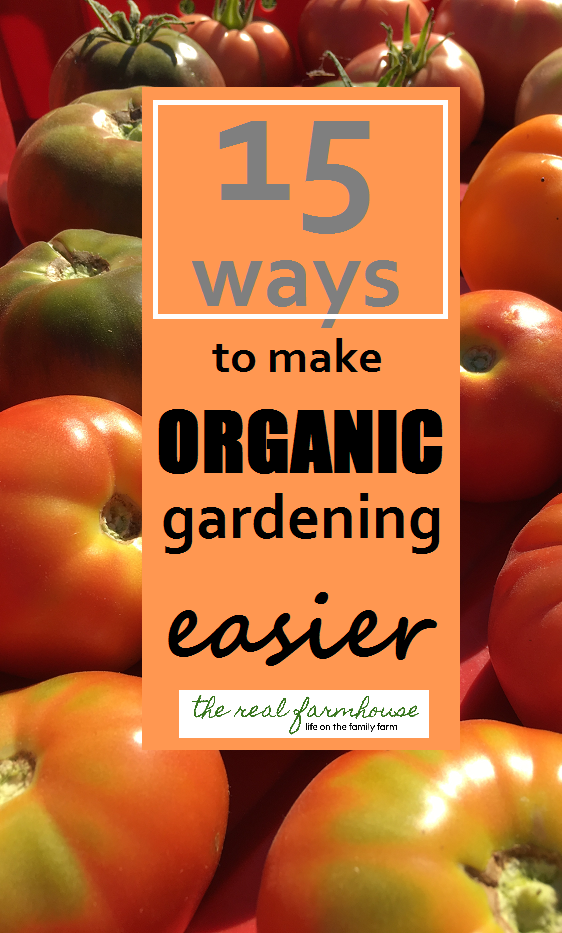
- companion planting
- heavy mulch
- home made compost
- drip irrigation
- ordering organic seeds online
- planting extra
- the use of cover crops
- crop rotation
- plant some early and some late
- plants that naturally repel pests
- plants that attract beneficial insects
- home made sprays or remedies for bugs and weeds
- using nets or plastic as a pest barrier
- replenishing and building healthy soil
- lots and lots of praying!
Want to learn more about transitioning to organic practices? CLICK HERE to read the trick on how I keep the bugs out of my organic fruit trees or CLICK HERE to watch a video about it. No more earwigs in my apricots, yay!
~Farmer’s Wife
